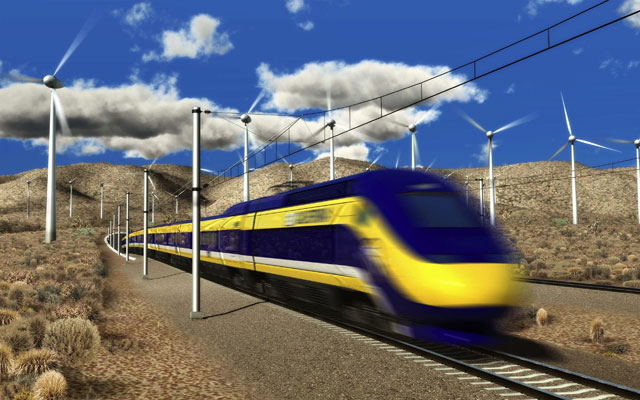Federal funding for high-speed rail would end under the House fiscal year 2014 budget introduced by Budget Committee chairman Paul Ryan (R–WI).
Costly high-speed rail and other intercity rail projects are not federal priorities, especially in this era of trillion-dollar budget deficits. They should not be exempt from budget cuts. As Heritage Foundation visiting fellow Wendell Cox explains, transit has failed to accomplish its objectives of improving mobility, providing practical transportation alternatives for low-income citizens, and reducing air pollution—despite receiving subsidies for decades.
Transit is also largely concentrated in just six “transit legacy cities”: Boston, Chicago, New York, Philadelphia, San Francisco, and Washington, D.C. Cox writes:
The transit legacy cities contain just 6 percent of the nation’s employment, and cover little more land area than the municipality of Jacksonville,Florida, even though they are the destination for 54 percent of transit work commuting.
Continuing to federally subsidize a handful of more affluent cities’ transit systems is difficult to justify. As with high-speed rail, states and localities—not the federal government—would more be appropriate to fund and manage transit.
All of this comes at the same time as a letter that Ryan co-signed with Senate Budget Committee Ranking Member Jeff Sessions (R–AL) urging Transportation Secretary Ray LaHood to reject the loan application for the XpressWest high-speed rail project, which would run from Victorville, California, to Las Vegas. Ryan and Sessions expressed concerns about the project’s viability, citing the potential risk to taxpayers if default on the federal loan occurs.
Because overly optimistic ridership and revenue forecasts taint the XpressWest loan application, that scenario seems all too likely. The Reason Foundation concludes that if default occurs, “taxpayers would lose up to $6.5 billion in principal and any unpaid interest, an amount that could climb to more than $7.5 billion if a full six-year deferment of repayment is granted.”
High-speed rail and intercity rail projects waste taxpayer money, divert limited transportation funds to vastly more expensive forms of transportation, and force taxpayers to subsidize the operating costs. Their power to create jobs is all-too-often mischaracterized and overblown.
Eliminating federal spending on high-speed rail—as Ryan’s budget would—would mark a victory for federal taxpayers.



























